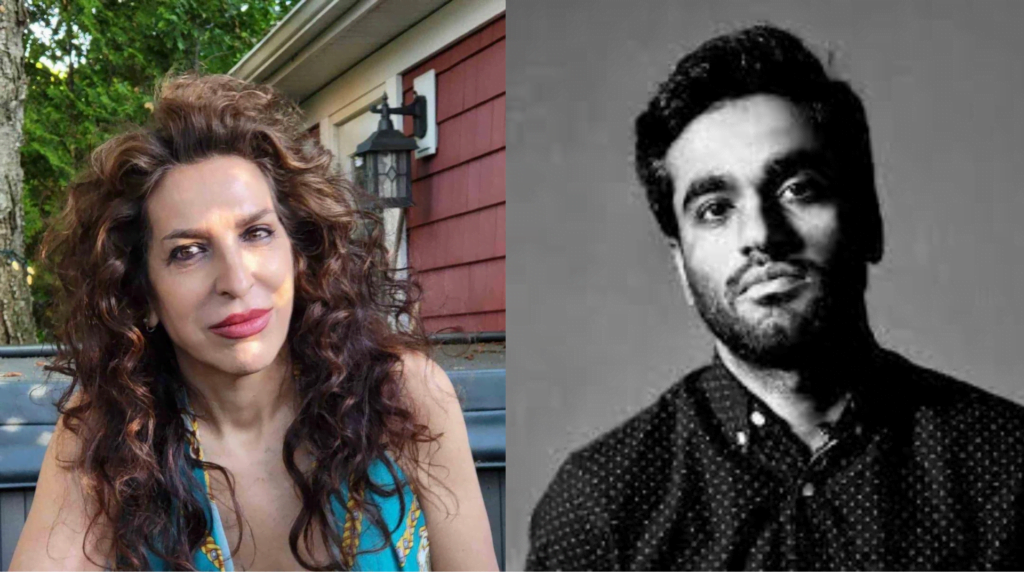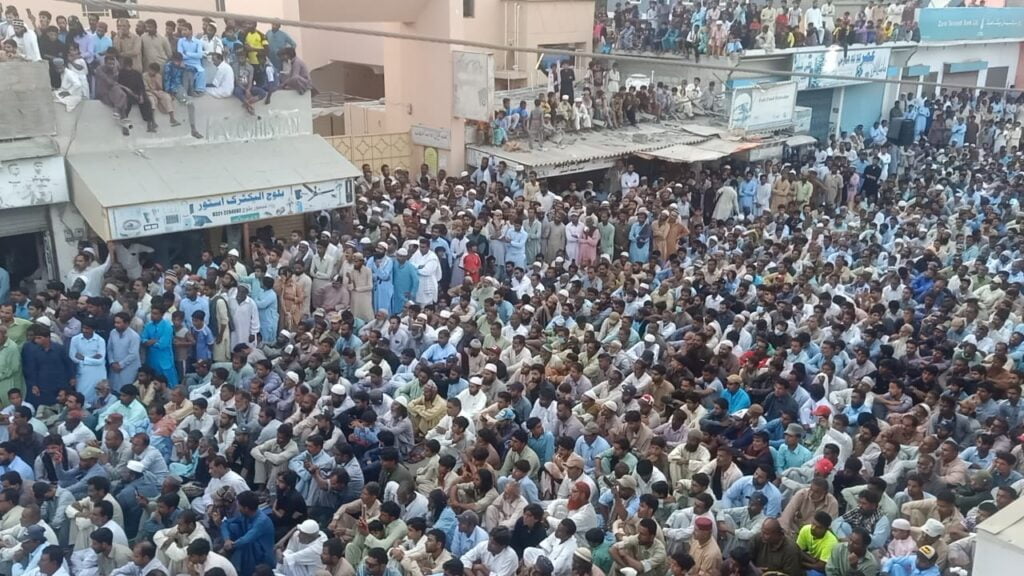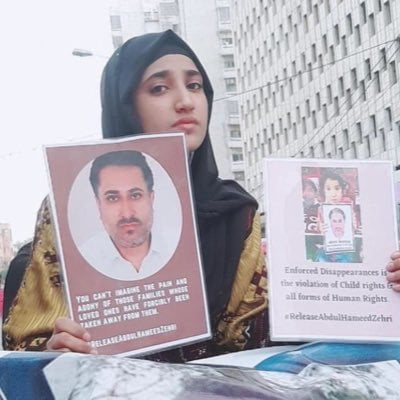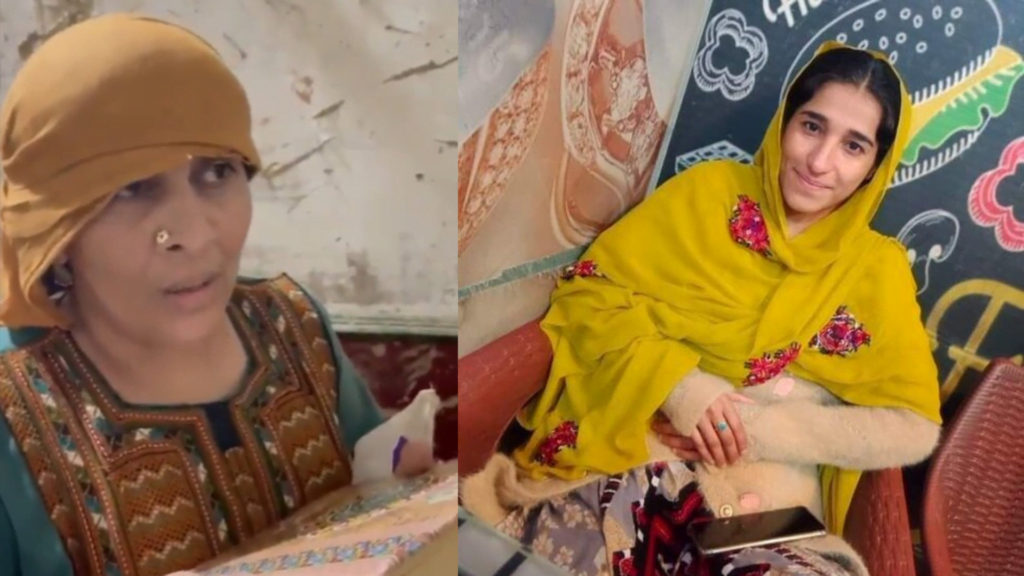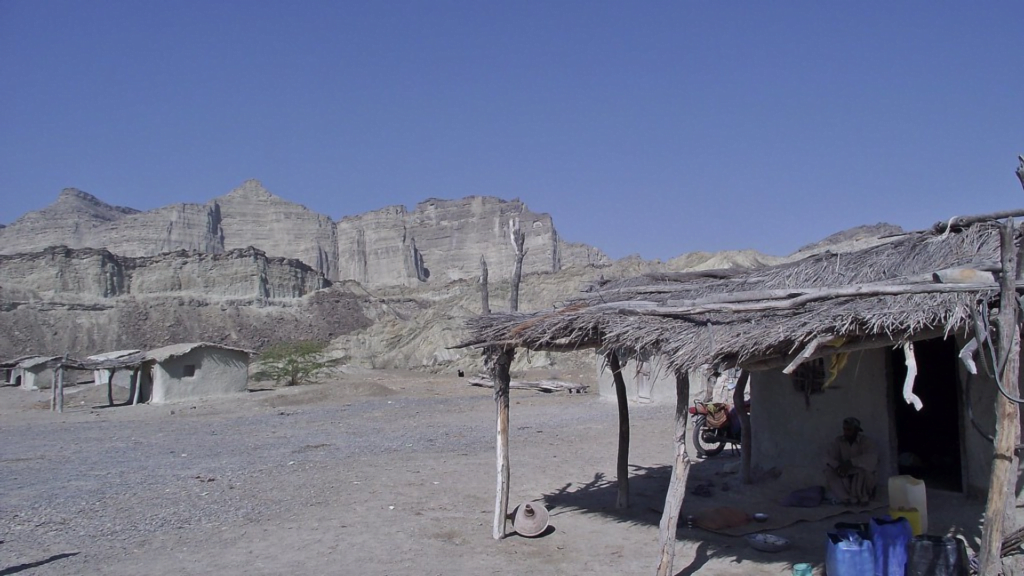Since I arrived in Canada as a political asylum seeker and after being able to speak and write in English, I have been spending most of my time and energy creating awareness about the Pakistani government’s human rights violations and the humanitarian situation in Balochistan. I have reached out to dozens of human rights organizations and hundreds of individuals such as journalists, writers, politicians, diplomats, and human rights defenders, requesting them to speak out or write about the political and social rights and crimes against humanity in Balochistan, but got more disappointed than getting significant answers. However, a few responded positively and ensured me to do something in their capacity.
It is rare to find interest in knowing and reporting Balochistan’s humanitarian situation in western media or human rights organizations. However, one day I got a call from a journalist with a caring and friendly voice. She introduced herself as Mary Lynk from the CBC, the Canadian Broadcasting Corporation. “I am so sorry for your friend Karima‘s mysterious death.” She offered condolences. Then she talked about her project to make a documentary on Karima Baloch and asked me if I could contribute.
She was the first well-known journalist who reached out to me with a big project I was always thinking of but not expecting a prominent journalist from a big media outlet to approach me and ask for my help to make it possible. As a person who spent his entire life in human rights activism, creating awareness about rights violations while leaving no stone unturned to highlight Balochistan’s humanitarian crises, I was more than happy and surprised. My answer was “”yes, yes, of course. I lemme know what I can do?.” So, our first conservation resulted in the production of “The Kill List.” The Kill List is a six-episode documentary, which I believe is the best and most well-researched and investigated documentary ever produced on Balochistan’s ongoing humanitarian situation by a western journalist, especially on the issue of enforced disappearance and Pakistan army’s policy of “kill and dump”.
She was highly passionate about working on and telling the story of Karima Baloch and Balochistan to the world. She wanted to let the international community know who Karima was, why she became a person who was respected and followed by thousands and named in 100 inspirational women by the BBC, and why she was also hated and chased by the Pakistani security establishment. Still, the international community was unaware of or ignored her bravery, courage and politics. She also wanted to tell what was happening in Balochistan, Karima’s homeland and why she escaped to Canada.
I wanted to know what made her initiate and produce “The Kill List,” was it easy to convince her producers because Balochistan’s human rights situation rarely makes news in international media? How did her perspective about Balochistan change, and what did she learn while making the documentary? And many other questions. Therefore, I requested her for an interview for the Balochistan Times.
Mary is a well-known award-winning journalist, writer, and producer with 40 years of experience with the main focus on highlighting human rights violations. She is a producer of CBC Ideas, podcast. Habtom’s Path (New York Festivals Gold/United Nations Award) I Will Never See the World Again: Ahmet Altan (Amnesty International Award) are among her award-winning documentaries.
The Balochistan Times is thankful to her for agreeing to the interview, which follows.
L. J: First, let me thank you for producing the incredible documentary, The Kill List” and giving me the chance to help produce it. Working with you was amazing. I learned many things. I have previously worked and spoken to many journalists on Baloch and Balochistan issues and humanitarian crises. But working with you was a different experience. I found you really care about the issue and want to tell Karima and her people’s stories. You worked hard to find authentic, credible, and robust people
and voices to make the documentary more influential and thought-provoking. I got your emails and texts, even sometimes, on weekends and middle of the night, regarding finding contacts, checking facts, etc. I have also listened to your interview on the Current program of the CBC. You said that “she (Karima) lived inside me. She kind of haunt me in a good way” Why so? Tell Balochistan Times’ readers and the audience about your initial thoughts, ideas, bravery, and hard work in producing the Kill List.
M. L: I first learned of Karima, when I read about her death in The Guardian newspaper. I had never heard of her, and yet there was something about Karima that I was immediately drawn to. So many unanswered questions. Who was she? Why was she in Canada? How did she get named in 2016 to the BBC’s annual list of inspirational and influential women? How did she manage to become a leader in a highly patriarchal society – the first BSO female leader in its 50-year history? Her incredibly courageous human rights work evoked a young woman of great exception. And indeed, that is what everyone who knew her talked to me about – her charisma, her bravery, her intellect and her determination for justice.
Karima reminded me of Nadia Murad, the Yazidi woman who spoke out against ISIS and the genocide being conducted against her people – an ethnic minority in Iraq. I read about Nadia’s personal ordeal and that of her people in her stunning book: The Last Girl. It filled me with such joy when she was awarded The Nobel Peace Prize. Karima also reminded me of another Nobel Peace Prize winner, Malala Yousafzai.
Maybe if Karima had lived, she too would have ended up receiving that award in Stockholm. I felt compelled to know Karima, to find out what she was fighting for.
L. J: How much knowledge did you have about Balochistan’s conflict and issues before the mysterious death of Karima Baloch?
M. L: Like most of the world, nothing – which is a travesty and something that needs to change. So that is why this podcast series meant so much to me.
L. J: No one (especially media outlets) buys the stories and projects on Baloch and Balochistan’s issues because they don’t include the interests of the world powers. I have talked to many Canadian journalists and media outlets regarding Karima’s case and my own situation, but all disappointed me. So, was it challenging for you to convince the senior producers of the CBC Ideas to produce “The Kill List”? How did you convince them?
M. L: Interestingly, it wasn’t that difficult. Just after Karima’s passing, I called up the Executive Producer of CBC Podcasts, Arif Noorani, and said they should do her story. I wasn’t pitching myself to do it, as I am full time with the national CBC radio program: IDEAS (cbc.ca/ideas [1]), but I was quite impassioned that it was an important topic. A few weeks later, Arif called me and asked if I would write up a pitch. So I reached out to you, Lateef, and Sameer (Karima’s brother), and you both kindly agreed to participate, despite your collective deep grief, not just for Karima, but for Sajid Hussein as well.
And well, long story short, based on my reputation as a documentarian with a strong interest in Human Rights, and the pitch, Arif gave it the green light. And it wasn’t necessarily a podcast series that many podcast outlets would have said yes to. But Arif knows how important it is to tell international stories, in particular the untold tragedy of Karima and her people. So, I will be forever grateful to him, and to all those who spoke to me in this series – in particular Karima’s family and those whose family members have suffered enforced disappearances, and those who themselves who have been disappeared and tortured by the Pakistan State, and yet after being released, refuse to be silent.
All these people made me work even harder to tell this story – and to make sure it grabbed an international audience, which thankfully it did. It has reached the top podcast charts in about 40 countries around the world. And despite the difficult moments in this podcast series, the dissidents determination for justice makes this series compelling and often uplifting.
L. J: I have worked with others on a similar Balochistan issue, but after Karima’s mysterious death, they hesitate to publish their work. I also remember meeting with a senior official of the U.S Institution of Peace (USIP) in Washington DC in 2019. He told me that they cannot openly do anything because of the security of their officials working in Pakistan. Don’t you fear any consequences for producing such a powerful and thought-provoking documentary on an issue on which a few people dare to speak and report? Because it involves a country and its notorious security agencies, which seemingly don’t care about interfering in another country’s internal affairs and violating international laws,
especially extrajudicially persecuting dissidents, human rights advocates, campaigners, and journalists?
M. L: Well, some were worried about me. And there was a time when Sameer did warn me about what I was taking on, in terms of confronting the Pakistani State, in particular the military. And yes, it made me a tad nervous at times earlier on.
But honestly, in light of what the people of Balochistan face, other dissidents in Pakistan, and those who have fled to the West, any personal fear dissipated. I wanted to give a louder voice to Karima on the world stage, to give a voice to the Enforced Disappeared, to
courageous dissidents who have not cowered, despite threats to their lives and loved ones.
The world has been silent for too long on these international crimes by the State of Pakistan against their own people. These are, in the words of the renowned Human Rights lawyer, Hina Jilani: “Crimes against Humanity.”
Why this story is not better known is frankly shocking. But even more so, why the Western Governments are mostly silent and not calling publicly for Pakistan to stop Enforced Disappearances, is even worse. As a journalist, I felt I had to help tell this story. And thank you, Lateef, for all the help you gave me to make this possible. As well, much gratitude to Sameer and so many others.
L. J: It is also not easy to make the people, especially the victims and their families living in Balochistan, speak about the injustices and brutalization committed against them by the Pakistani government and its security forces. Was it easy for you to find such a vast list of interviewees, which includes politicians, victims of torture, such as Rafeeq, families, Amnesty and UN officials and intellectuals and academics whose names are reportedly included in Pakistan’s “Hit List” such as Ayesha Siddiqa, and well-known journalists such Declan Walsh? How did you convince them to speak on a prohibited topic?
M. L: Ah, younger journalists often ask me how I get people to talk to me. It is probably the greatest skill I possess as a working journalist for almost 40 years. And it’s not a big secret. If you care enough about the story, if you are telling it for the right reasons, you can convince others to also talk. It’s about being authentic, confident, and compassionate. At the core of all great stories, is the human heartbeat. And those stories make the world a better place.
It also helped immeasurably to have your help Lateef – and others. You need to seek out help when trying to tell these stories. To make sure the journalism is again authentic and well told. This series was a result of many people’s expertise, knowledge, and connections. A good journalist can never take the sole credit for an in-depth investigative
piece. And I had so much assistance, including a great team at CBC Podcasts, along with my producer Ilina Ghosh. It is never just me.
L. J: Karima’s mysterious death happened on Canadian soil. Many people, including human rights organizations and advocates, criticize the Liberal government for not taking the case seriously. I tried many times to reach our Prime Minister, Justin Trudeau, and Deputy Prime Minister, Chrystia Freeland, regarding the issue but did not get any response. I didn’t hear any comments from the Canadian officials in the documentary. Did you try to approach them and ask for their point of view on Karima’s mysterious death and criticism against them? If yes. What was the response? At the end of every episode, you mention that the Pakistani foreign minister did not respond to your request for comments. But no words about Canadian officials. Why? Did they refuse to comment?
M. L: We, mostly our excellent fact-checker Emily Mathieu, were diligent in asking for accountability. We sent letters to so many people and organizations – all of which we documented in the series. Some would say they couldn’t release confidential information citing privacy issues – in particular, those affiliated with the Canadian government. Pakistan officials just refused to even acknowledge our letters.
L. J: What is the response of people and your colleagues, especially Canadians, to the Kill List?
M. L: The response to The Kill List has been overwhelmingly positive, from listeners in Canada and around the world. Honestly, I wasn’t sure if people would listen to a series about human rights violations in a place that few have even heard about. But they did in huge numbers – and the series made the top charts in more than 40 countries. It both surprised and comforted me that people were moved by the story of Karima and Balochistan. And I was particularly pleased that this podcast series was available in Pakistan, where government authorities have long tried to prevent media coverage of human rights issues in Balochistan.
L. J: Can you please share your experiences during making and producing the Kill List?
M. L: It was a pretty intense year of research, interviews, and crafting of the 6 episodes. I worked, for the most part, 7 days a week. It was a passion project, as I wanted to tell the story of Karima and the human rights abuses against The Baloch to the best of my abilities – especially since it was a story the world was largely ignoring or unaware of. And while it was exhausting, it was rewarding and meaningful work. I also had a stellar team at CBC Podcasts working with me. And support from you, Lateef, Sameer, and other friends and family members of both Karima and Sajid.
L. J: How did your perspective on Balochistan’s case change after producing the kill list?
M. L: Well, for starters I knew nothing about the human rights situation in Balochistan – in particular the issue of rampant Enforced Disappearances. And it was an honour to learn about the rich and vibrant Baloch culture. I will continue to monitor the situation as a journalist, but also as a concerned world citizen.
L. J: Why do you think Balochistan’s issue is ignored by the media, international organizations, and governments?
M. L: I asked this of several experts featured in The Kill List. Mostly, they say Western governments are ignoring these human rights abuses to maintain a relationship with Pakistan due to geopolitical concerns. And yet other countries, such as Saudi Arabia, have been criticized by the Western governments in terms of human rights infractions. So why not Pakistan?
L. J: Do you have any other project in your mind regarding Balochistan’s case to work on?
M. L: Well, I am open to any new evidence in Karima or Sajid’s case. I am also keeping an eye on the situation of other Baloch activists, including Sammi Baloch. And I am doing an hour-long profile for CBC IDEAS on a prominent Pakistani Human Rights Activist – in which, among other issues, Balochistan will be discussed. I will let you know when that airs. CBC IDEAS has a large audience, both in Canada and around the world – in the millions.
L. J: Do you want to share any interesting thing and story, such as cultural or historical and individual experience, you experienced about Baloch and Balochistan with our audience?
M. L: I have been struck by the openness and progressiveness of the Baloch people. The Baloch I met through this series, while proud of their heritage, are also very much global citizens. While their culture, their language, and their lives have been under serious threat since the inception of the Pakistani State, their determination to remain steadfast to their demands for fair treatment is both deeply courageous and inspiring.
L. J: Thank you so much for speaking to Balochistan Times. And the Balochistan
Times is thankful to you for highlighting the mysterious death of its
founding editor Sajid Hussain in your documentary.


